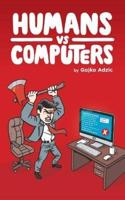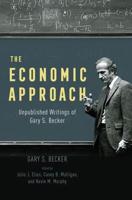Publisher's Synopsis
How artificial intelligence can raise office efficiency to bring benefits to online tourism and publish industries ?Artificial Intelligence is already impacting every industry through automation and machine learning, bringing concerns that AI is on the fast track to replacing many jobs. But these fears aren't new, says Dan Jackson, director of Enterprise Technology at Crestron, a company that designs workplace technology. "I'd argue this is no different than when we moved from an agricultural to an industrial economy at the turn of the last century. The percentage of people working in agriculture significantly decreased, and it was a big shift, but we still have plenty of jobs 100 years later," he says. Anytime society experiences a major technological advancement, we need to be prepared for it to change the way we live and work. It's hard to imagine what the future of jobs will look like with AI, but that future exists. And optimists suggest that, like the sewing machine to the textile industry, AI will make us better, more efficient and faster workers. In fact, many experts agree that AI has the potential to eliminate mundane, administrative work, while we will always rely on human workers to be empathetic, collaborative, creative and strategic. But it's impact on any industry lies in the hands of the business leaders who are responsible for adopting AI strategies. ⦁Training presents challengesA recent study of 1,000 global companies by Accenture found that AI is already creating three new categories of jobs: trainers, explainers and sustainers. Trainers are the people who teach AI systems how to act -- whether it's language, human behavior or the intricacies of human interaction. Explainers are the liaison between technology and business leaders, providing more insight and clarity into machine learning for the non-tech workers. Sustainers are the workers required to maintain AI systems and troubleshoot any potential issues. Some jobs were highly technical and required advanced degrees, but other roles demanded innately human things such as empathy and interaction. Downstream jobs, such as those in sales, marketing, or service will change to take advantage of the insights from AI, but many of the core skills will remain. However, it might sound like any job related to AI will require years of technical knowledge, but that isn't the case. We've already seen a shift in tech hiring -- companies often need highly specific skill sets that are hard to find in potential candidates. As a result, more businesses are hiring employees with the right soft skills, and then training them in technical skills. Internet negative influences to travel agentsAlthough, on the one hand, internet creates offline travel agents to use websites to help them to sell electronic air ticket or travel related products, such as prebooking hotel rooms, restaurants, transportation tools etc. travel service. However, on the other hand, internet also brings travel agencies competitive disadvantage with regad to suppliers' direct websites, when airlines are able to control seat availability and prices. Indeed internet cause the decision is made by the airlines to reduce and/or eliminate travel agency commission has led them to use technology that many of their distrust or are not inclined to use, and to compare prices and travel schedules constantly. As a result of this travel sale service environment, traditional offline travel agencies are at a competitive disadvantage with regard to online travel agencie and to airline carriers, which have developed their own direct websites where they are able to control seat availability and prices.










